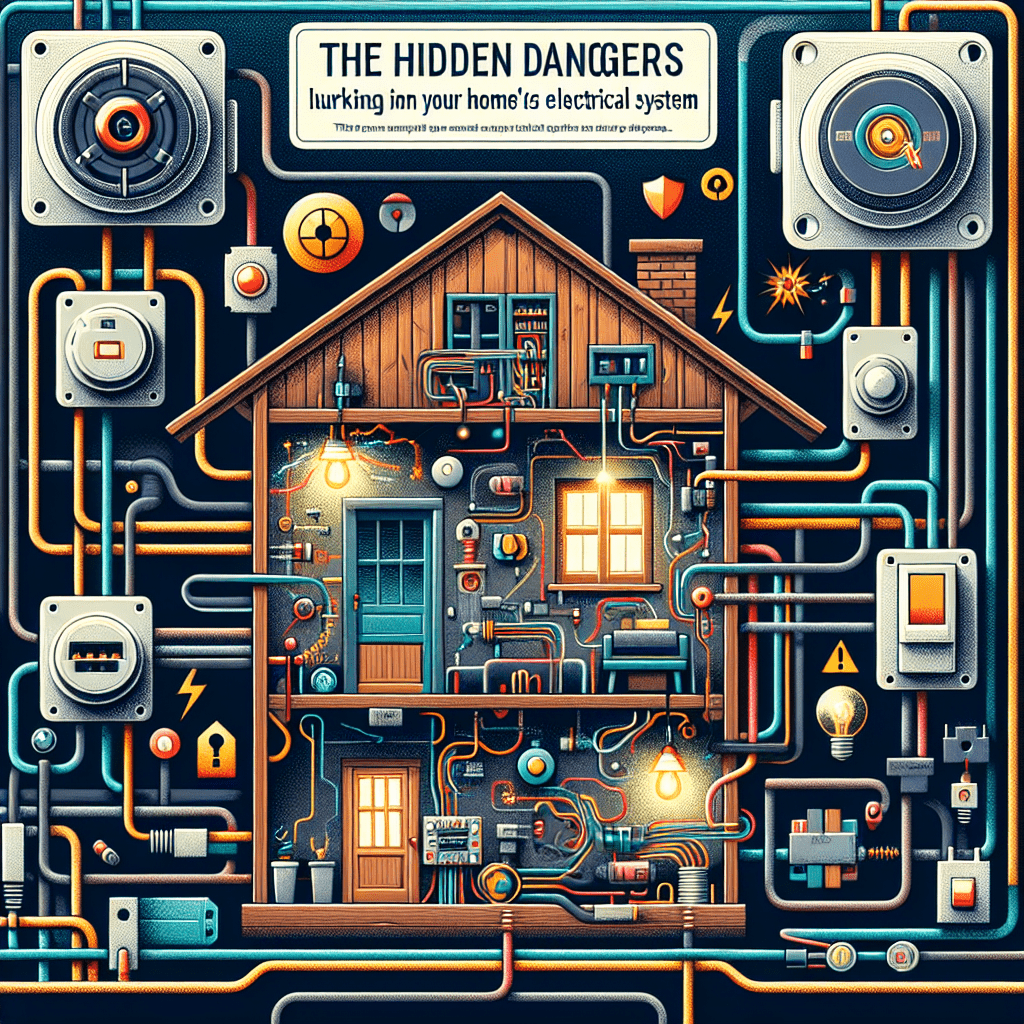Electricity is an essential part of modern life, powering our homes and providing us with light, heat, and the ability to run our appliances. However, the electrical systems in our homes can also pose hidden dangers if not properly maintained. Understanding these dangers and knowing how to mitigate them is crucial for ensuring the safety of you and your family.
Common Electrical Hazards in the Home
There are several common electrical hazards that can lurk in your home’s electrical system. These include:
1. Faulty Wiring
Old or damaged wiring can lead to electrical fires and shocks. Signs of faulty wiring include flickering lights, burning smells, and tripped circuit breakers.
2. Overloaded Circuits
Plugging too many devices into a single outlet or circuit can lead to overheating and fire. Make sure to spread out your devices across different circuits to prevent overloading.
3. Outdated Electrical Panels
Older homes may have outdated electrical panels that are not equipped to handle the demands of modern electrical appliances. Upgrading your electrical panel can help prevent overloading and fires.
4. Exposed Electrical Wires
Exposed electrical wires are a major safety hazard, as they can lead to shocks and fires. Make sure to cover up any exposed wires and cords to prevent accidents.
How to Mitigate Electrical Dangers
There are several steps you can take to mitigate the dangers posed by your home’s electrical system:
1. Schedule Regular Inspections
Having a qualified electrician inspect your home’s electrical system regularly can help identify potential hazards before they become serious issues.
2. Install GFCI Outlets
Ground Fault Circuit Interrupter (GFCI) outlets can help prevent electric shocks by cutting off power when they detect a fault in the circuit.
3. Use Surge Protectors
Surge protectors can help protect your appliances from power surges and spikes, which can damage your devices and pose a fire risk.
Conclusion
It’s important to be aware of the hidden dangers that can lurk in your home’s electrical system and take proactive steps to mitigate them. By scheduling regular inspections, installing GFCI outlets, and using surge protectors, you can help ensure the safety of you and your family.
FAQs
Q: How often should I have my home’s electrical system inspected?
A: It’s recommended to have your electrical system inspected at least once every 5 years, or more frequently if you notice any signs of trouble.
Q: What should I do if I experience an electrical shock?
A: If you experience an electrical shock, seek medical attention immediately. Do not attempt to handle electrical issues on your own.
Q: Can I upgrade my electrical panel on my own?
A: It’s best to hire a qualified electrician to upgrade your electrical panel, as working with electricity can be dangerous if you’re not properly trained.
TIP: Keep an eye out for warning signs such as flickering lights, burning smells, and sparking outlets, as these can indicate potential electrical hazards in your home.
#Hidden #Dangers #Lurking #Homes #Electrical #System
